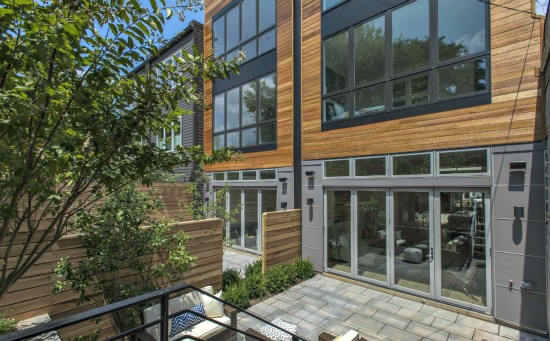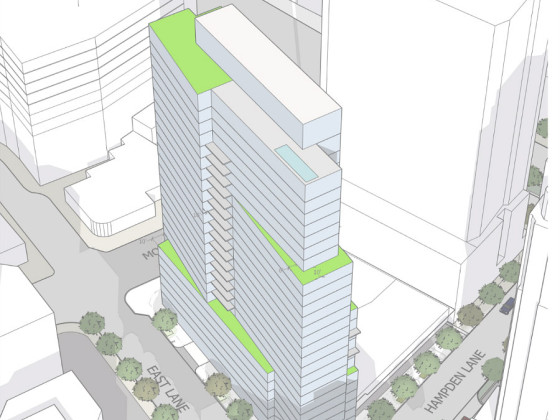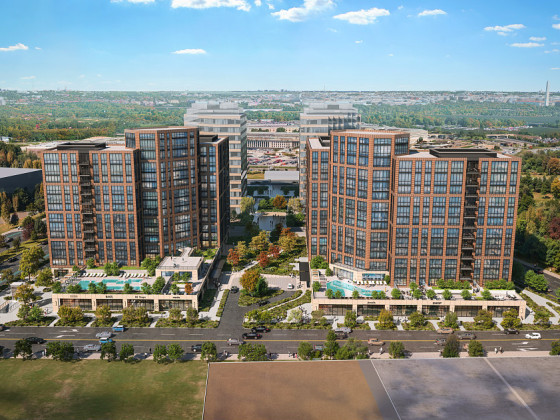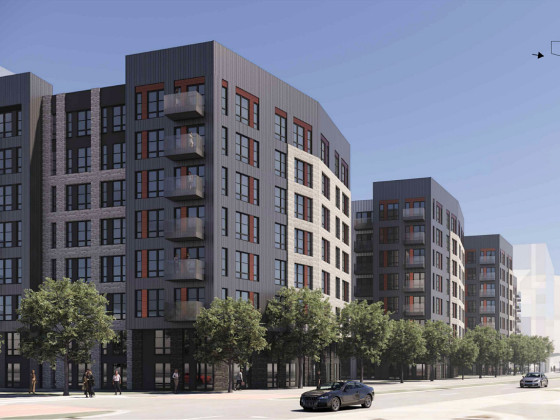 First-Timer Primer: Zoning and Your Planned Rowhouse Addition
First-Timer Primer: Zoning and Your Planned Rowhouse Addition
✉️ Want to forward this article? Click here.

Additions to two rowhouses in Hill East.
This article was originally published on UrbanTurf in 2016.
The District’s mostly brick, turn-of-the-century rowhomes can be as inflexible as they are charming; they are often narrow and small, with limited natural light, and don’t easily lend themselves to a lot of different layouts.
Which leads many owners to consider an addition. Before you move forward, it’s important to consider a few factors like whether or not your home is in a historic district or whether an addition to your home may require getting a zoning exception. Here are some questions to ask before you hire a contractor.
Is your home in a historic district?
If so, you’ll need to get approval from DC's Historic Preservation Office before you can get your hands on a building permit. On the plus side, determining whether or not your home is in a historic district is relatively simple — you can check it out on a map here.
How much of the lot is your home occupying?
This is the most important question to answer when you’re deciding whether to build an addition and when setting your expectations for that addition. You’re not going to be able to build your rowhouse out all the way to the property line; you’ll have to follow rules about lot occupancy. DC generally allows homes to take up 60 percent of the lot on which they sit. The calculations include your house and any other structures on your property, like a garage.
Paul Wilson, an architect who routinely represents clients in front of the Board of Zoning Adjustment (BZA), told UrbanTurf that many existing rowhouses are “nonconforming,” meaning they already don’t adhere to the city’s current rules about lot occupancy. Building an addition on one of these lots may be difficult.
“Chances are if you’re doing any kind of addition in a rowhouse neighborhood, you’re going to run into that,” Wilson said. “If you have a rowhouse and a garage on your lot, you’re probably already over the lot occupancy.”
How large of an addition are you going to build?
If you are able to build an addition on your lot, you’ll next have to determine how large it can be. When homeowners go to the Board of Zoning Adjustment to get permission to build an addition, they may be seeking a special exception or a variance. Special exceptions require less proof than a variance does, meaning they’re generally easier to get, Wilson said.
But there’s a catch: To try and get a special exception, your home plus the addition can’t take up more than 70 percent of the lot. If the structure goes over that limit, you’ll be seeking a variance, which could be more difficult to obtain.
Do you need representation?
Not necessarily, though having representation, in the form of a lawyer, architect or other land use expert can save you a lot of time and probably some headaches.
“Generally BZA wants to give homeowners the relief, but the burden of proof is still on the applicant, so you have to get them there by showing them convincing evidence,” Wilson said. “You have to understand the rules and what the criteria are that BZA will accept.”
A homeowner can successfully represent themselves, he said, but may have to appear in front of the board multiples times to provide more and better documentation.The BZA itself urges applicants to get professional representation, probably because it saves them time, too.
If you do decide to hire someone, make sure to ask about their experience and success rate, Wilson said. The BZA notes that anyone can look up video of previous proceedings online to see how well a representative has performed in front of the board in previous cases. You’ll just need to get case numbers from the representative and look up the cases online here.
See other articles related to: board of zoning adjustment, first-timer primer, zoning
This article originally published at http://dc.urbanturf.production.logicbrush.com/articles/blog/first-timer_primer_zoning_and_your_planned_rowhouse_addition/9682.
Most Popular... This Week • Last 30 Days • Ever

The property in Upperville known as Ayrshire Farm sold on Friday.... read »

While it may seem like paying off a long-term mortgage early is a difficult task, it ... read »

The plans for a building that (forgive us) is just trying to fit in in downtown Bethe... read »

A new proposal is on the boards for the former home of the Transportation Security Ad... read »

The developer is under contract to purchase Land Bay C-West, one of the last unbuilt ... read »
- Sandy Lerner's 570-Acre Virginia Farm Sells For $19.8 Million
- A Look at The Ways You Can Pay Off Your Mortgage Early
- Narrow 260-Unit Apartment Building Pitched For Bethesda Moves Forward
- 637 Apartments, 31,000 Square Feet Of Retail: The New Plans for Pentagon City TSA Site
- The Last Piece of Potomac Yard: Mill Creek Residential Pitches 398-Unit Apartment Building
DC Real Estate Guides
Short guides to navigating the DC-area real estate market
We've collected all our helpful guides for buying, selling and renting in and around Washington, DC in one place. Start browsing below!
First-Timer Primers
Intro guides for first-time home buyers
Unique Spaces
Awesome and unusual real estate from across the DC Metro














